The British Army captain who helped found the Irish Citizen Army
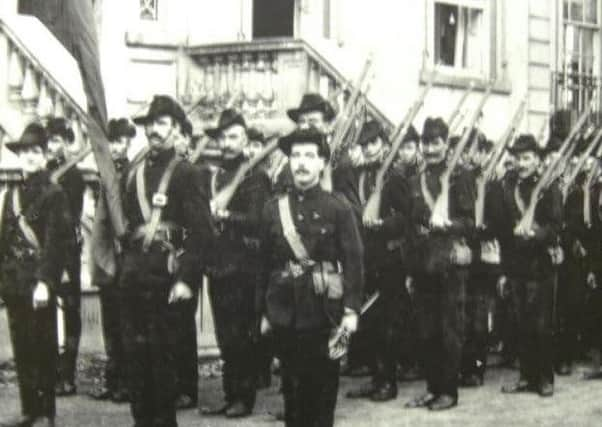

Given that his background was one steeped in the British Army and the Anglican Church it is a remarkable rejection of his ancestral heritage that Captain James Robert ‘Jack’ White went onto become one of the co-founders of the Irish Citizen Army.
Jack White also had a direct link to Derry in the years directly before the Easter Rising of 1916.
Advertisement
Hide AdAdvertisement
Hide AdJack White was born on May 22, 1879 at Whitehall, Broughshane, County Antrim. An only son, he initially followed in the footsteps of his father, Field Marshal Sir George Stuart White and was educated at Winchester before moving on to the Royal Military College at Sandhurst.
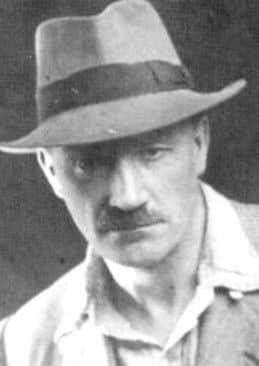

Aged just 18 White saw service with the 1st Gordon Highlanders in the Boer War and won the Distinguished Service Order (DSO). In 1901, The London Gazette ran the following citation explaining why he had won the military accolade.
It said: “James Robert White, Lieutenant, The Gordon Highlanders. For having, when taken prisoner, owing to mistaking advancing Boers for British troops, and stripped, escaped from custody and run six miles, warning Colonel de Lisle, and advancing with him to the relief of Major Sladen’s forces.
It was whilst in South Africa that he began to develop his dislike of the British ruling classes. At the battle of Doornkop during the Boer War he was one of the first to go over the top. It is said that he looked back at saw a 17-year-old soldier shaking with fright in the trench. When another officer shouted ‘shoot him’, White aimed his revolver at the officer and told him, ‘do do and I will shoot you.’
Advertisement
Hide AdAdvertisement
Hide AdJack White however continued his military career and between 1901-1905 he served as aide-de-camp to his father who had been appointed as Governor of Gibraltar. He here met Mercedes Mosley who came from a Gibraltar business family and who was a Catholic. Despite objections from both families the couple married and his military career then took him to India and Scotland.
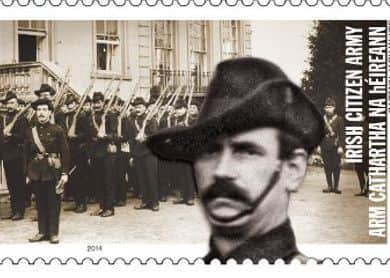

However, in 1907, disaffected with the British Army and its colonial role he resigned his commission and in the following few years he lived in a commune in England as well as travelling to Bohemia and Canada.
By the time he arrived back in Ireland, Sir Edward Carson’s campaign against Home Rule was taking off. Carson had founded the Ulster Volunteer Force who were threatening war against England if any measure of self-determination was granted to Ireland.
Jack White organised on of the first Protestant pro-Home Rule meetings in Ballymoney to galvanise Protestant opinion against the Unionist Party and against what he termed its “bigotry and stagnation” that by proxy associated Ulster Protestants with conservatism. It is worth noting that another speaker at that meeting, from a similar background was Sir Roger Casement.
Advertisement
Hide AdAdvertisement
Hide AdAs a result of the Ballymoney meeting White was invited to Dublin to meet with James Connolly. Impressed by the struggle to win recognition for trade unions and resist attacks on workers by William Martin Murphy and his confederates. Having converted fully to the principles of socialism he offered his services to the Irish Transport and General Workers Union (ITGWU) at Liberty Hall in Dublin and spoke on union platforms with people such as journalist Francis Sheehy-Skeffington, Bill Haywood of the Industrial Workers of the World and James Connolly as well.
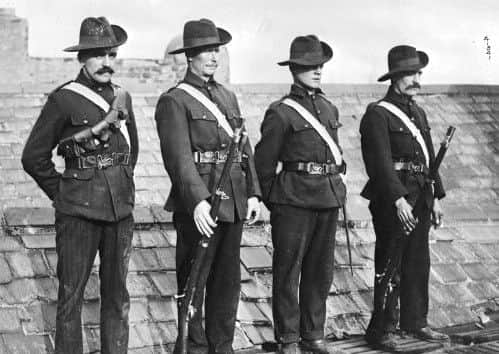

In 1913 it was Jack White who proposed the formation of a workers militia to protect picket lines from assaults by the Dublin Metropolitan Police. The idea of a Citizen Army under his training was enthusiastically accepted.
It’s appearance, White later recalled, “put manners on the police.”
At this stage he put his services also at the disposal of the Irish Volunteer Force (IVF) as he asserted that a stand had to be taken against British rule by a large armed body of people.
Advertisement
Hide AdAdvertisement
Hide AdUnder the direction of the IVF leadership, Jack White was then despatched to Derry. For this brief period in 1914 he was the Commander of the Volunteers in
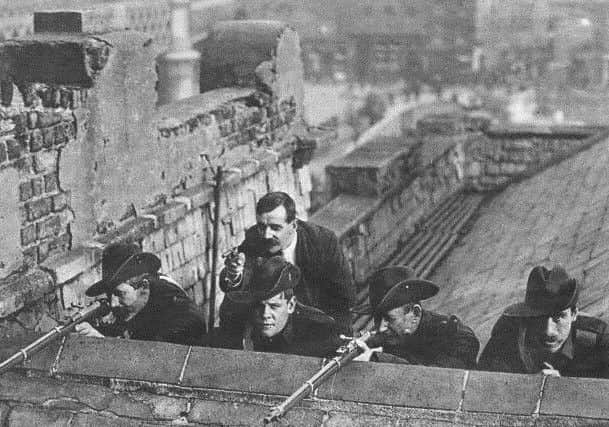

Derry City and Donegal.
Whilst in Derry City he lodged at a house on East Wall, but his trip here was ill-fated. The Volunteer brigade in Derry had a substantial number of members who, like himself, were ex-servicemen. When he tried to spread the ideals behind worker’s unity the Derry men dismissed him as merely someone who only ‘sticking up for his own’, i.e. Protestants. Disheartened by the failure to create unity in Derry, Jack White returned to Dublin.
When Connolly was sentenced to death after the Easter Rising, White went to South Wales in an attempt to bring the miners out on strike to save his life. His thinking was that disruption to coal production during World War I would bear enough pressure to stop Connolly’s execution. However, his action resulted only in three months imprisonment.
Ironically, he was transferred from Swansea jail to Pentonville prison in London the day before the execution of Roger Casement for treason in bringing in German guns to Ireland for the Easter Rising. It is said that when Casement was hung he was within earshot.
Advertisement
Hide AdAdvertisement
Hide AdOn his return to Ireland during the War of Independence, White found himself politically isolated. The fervent nationalism of those years had long supplanted any notions of socialism formulated by Connolly and included in the 1916 Proclamation.
He briefly flirted with the newly formed Communist Party of Ireland but never actually joined. He returned to England and joined the anti-parliamentary communist group, the Workers Socialist Federation which was founded by Sylvia Pankhurst.
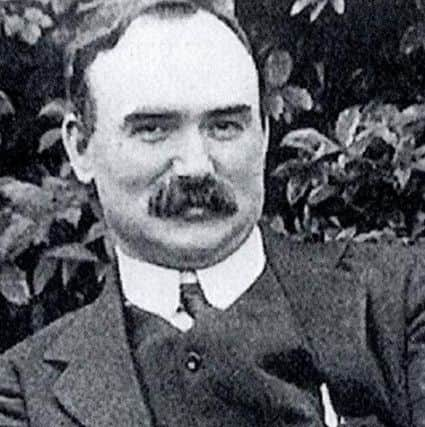

In 1934, a special convention was held in Athlone attended by 200 hundred former IRA members, socialists, communists and trade unionists. They resolved that a Republican Congress be formed. At its forefront was Donegal republican Peadar O’Donnell and this movement, well to the left of the IRA, was based on workers and small farmers. White joined immediately and organised a Dublin branch solely made up of ex-British servicemen.
The Congress later split between those who stood for class independence and thought intent only on a worker’s republic and those, led by the communists who wanted an alliance with Fianna Fail to reunite the country. After the bulk of the first group walked out, most of the joined the Labour Party, but White remained within the depleted ranks of the Republican Congress.
Advertisement
Hide AdAdvertisement
Hide AdIn the late 1930s he served as a medic with the Red Cross during the Spanish Civil War and it was here he made contact with the anarchist CNT-FAI. Returning to London from Spain he worked with Spain and the World, a pro-libetarian propaganda group active in Britain in support of the Spanish anarchists. Here, he met his second wife, Noreen Shanahan, the daughter of an Irish Government official. They had three children, Anthony, Alan and Derrick. He had one child, Ave, from his first marriage.
in 1938, the family returned to White Hall in Broughshane, White having inherited it after the death of his mother three years earlier. His return home was prompted by having to provide for his family. He received a regular income from the rent and sale of lands attached to the estate and also from his efforts as a journalist.
Captain Jack White made a brief return to the public eye during the British General Election campaign of 1945. Proposing himself as a republican socialist for the Antrim constituency, he convened a meeting at Broughshane Orange Hall to outline his views. A journalist noted that during the meeting White ‘commanded a rich vocabulary of language’ directed at a wide variety of targets that included Adolf Hitler, Pope Pius XII, Lord Brookeborough and Eamon de Valera. However, the journalist also recorded that White reserved special contempt for the Orange Order and the Unionist Party for the control they exercised through the Northern Ireland Special Powers Act.
In 1946, White died from cancer at a Belfast nursing home and was buried at the family plot in the First Presbyterian Church at Broughshane after a private ceremony.
His youngest son Derrick was later a prominent member of the Scottish Nationalist Party and then the Scottish Socialist Party.